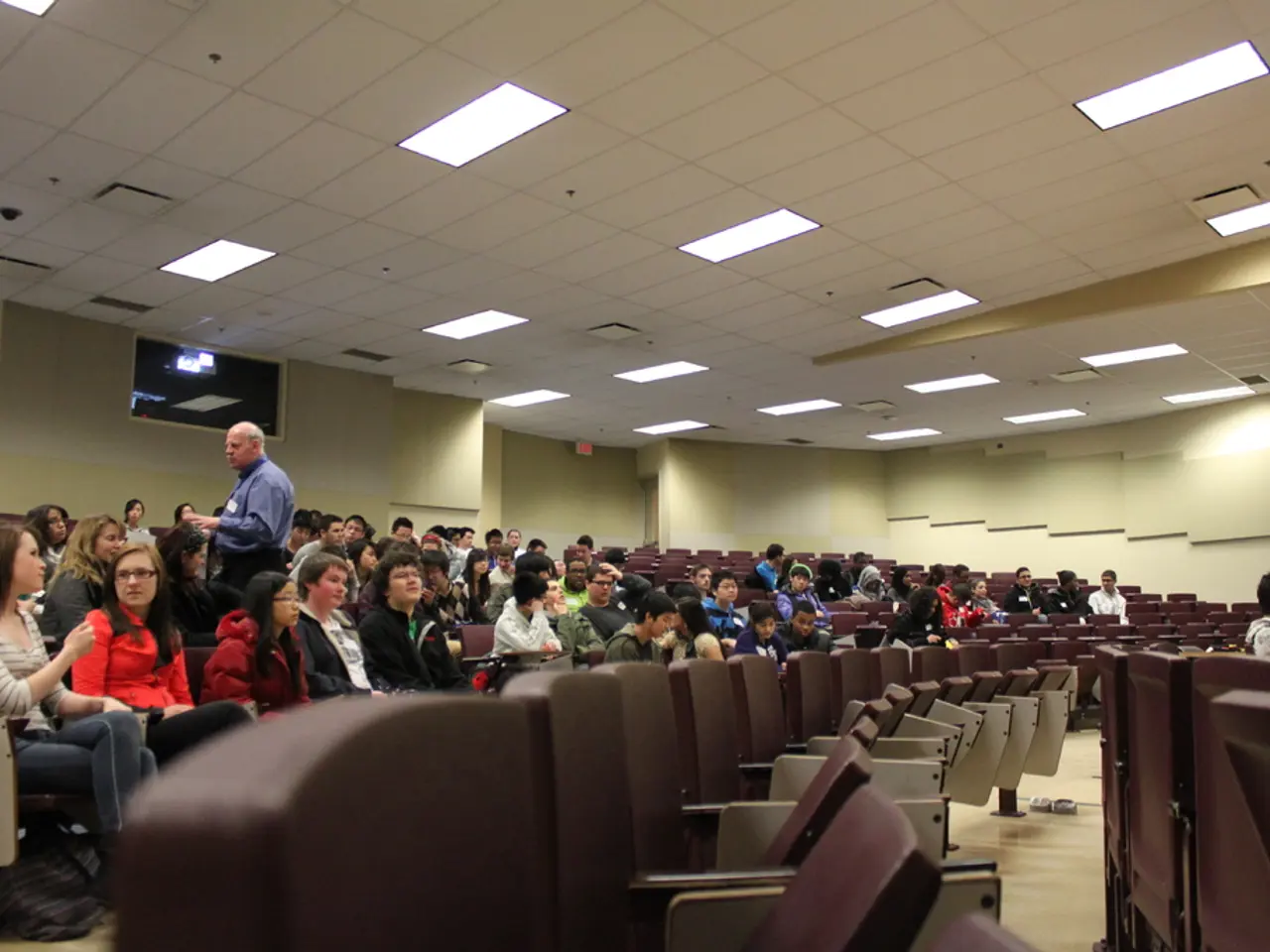Challenge in Leadership: Return from Virtual Meetings to Traditional Conferences
The world of work is evolving, and with it, the way we approach the office. The Purposeful Commute model is a new approach aimed at improving operational flow, boosting employee satisfaction, and ensuring that office time is reserved for moments that truly benefit from face-to-face interaction.
This model is about more than just returning to the office. It's about designing meaningful in-person experiences and rethinking the role of the office so that attendance becomes a choice, not an obligation.
Leaders can navigate the challenges of the post-pandemic era by integrating several key strategies.
Setting Clear Goals and Priorities
Leaders should first assess whether the need to return to the office is driven by measurable business benefits, rather than control or habit. Defining verifiable goals helps create focus and transparency in the strategy.
Not all work requires physical presence. Leaders should prioritize activities that truly benefit from face-to-face interaction, such as collaborative, creative, or onboarding sessions. By focusing on these areas, office time can justify the commute and reduce resistance.
Employee Involvement and Flexibility
Active involvement of employees in decision-making is crucial. Comprehensive surveys or feedback channels can help leaders understand employees’ preferences and concerns, demonstrating respect for individual needs and reducing pushback.
Flexible working models, such as flexitime, compressed workweeks, or hybrid schedules, can mitigate the loss of remote work’s flexibility, making commuting burdens more manageable and respecting employees’ time.
Gradual Transition and Intentional Culture
A gradual, step-by-step return approach can help lower resistance and smooth transitions. Starting with fewer office days per week and adjusting based on feedback and outcomes helps create a culture where returning to the office is contextualized around meaningful interaction.
Building an intentional workplace culture through consistent recognition and empowerment strengthens engagement by making employees feel valued and trusted. Models like CARE—which emphasizes celebrating achievements, acknowledging efforts, recognizing contributions, and empowering staff—can be particularly effective.
Supporting Employee Wellbeing
Explicitly and structurally supporting employee wellbeing is also essential. Encouraging use of paid time off, modeling healthy boundaries, integrating wellness into performance conversations, and establishing emotional check-ins create a safer psychological environment that supports sustained engagement and resilience.
In the end, the Purposeful Commute model is about more than just returning to the office. It's about creating a culture where returning to the office is contextualized around meaningful interaction, respect for personal circumstances, and authentic recognition of employees’ contributions and wellbeing.
Dr. Adil Dalal, a CEO, keynote speaker, leadership and AI pioneer, author of 7 books, and recipient of 10 global awards, emphasizes the importance of designing experiences worth showing up for. This can be achieved through innovative methods like intentional design, purposeful collaboration, and modern workspaces.
The transition from remote work to a physical office is complex, and leaders must navigate opposing forces such as the desire for in-person collaboration and resistance to returning to old norms. The future of work should move forward with purpose, offering what remote work cannot: spontaneous collaboration, mentorship, and shared energy.
Hybrid work requires a conscious structure to prevent disorder, and establishing a time-structured cadence can help teams function with greater clarity and purpose. Leaders must craft hybrid cultures that honor the lessons of remote work while rebuilding the benefits of in-person connection.
[1] Adil Dalal, "The Future of Work: A Guide for Leaders in the Digital Age" (Wiley, 2021)
[2] Adil Dalal, "The AI-Powered Leader: How Artificial Intelligence is Changing Leadership Forever" (Wiley, 2020)
[3] Forbes Coaches Council, "Navigating the Return to Office: Strategies for Success" (Forbes, 2021)
[4] Adil Dalal, "The Empathetic Leader: How Emotional Intelligence Drives Success in the Modern Workplace" (Wiley, 2019)
- Dr. Adil Dalal, a renowned leader and author, suggests that the success of the Purposeful Commute model relies on designing experiences that are worth commuting for, incorporating intentional design, purposeful collaboration, and modern workspaces.
- In the hybrid work era, effective leadership demands the integration of strategies such as setting clear goals and priorities, prioritizing face-to-face interaction for collaborative, creative, and onboarding sessions, promoting employee involvement and flexibility, gradual transitions, and intentional culture development, all while focusing on employee wellbeing.




